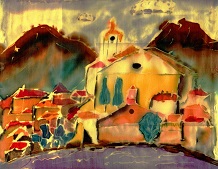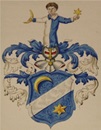|
Paracas is a coastal town located in the
Ica Region of
southern Peru, renowned
for its natural beauty,
wildlife, and
historical
significance. It sits on the shores of the
Pacific Ocean and is a
popular destination for tourists looking to explore
marine life,
desert landscapes, and
archaeological sites.
Paracas is known for its proximity to the
Paracas National Reserve
and the Ballestas Islands,
both of which are key attractions in the region.
Key Features of
Paracas:
-
Paracas National Reserve:
- The
Paracas National Reserve
is a protected area covering over
335,000 hectares
(830,000 acres) of land and sea. It was established to
protect the region’s unique
ecosystems,
including coastal
deserts,
beaches, and
marine environments. The reserve is a haven for
birdlife and
marine animals,
as well as a place of stunning natural beauty.
- It is one of the most
diverse natural
reserves in Peru, and its ecosystems support a range of species,
including flamingos,
sea lions,
penguins, and
various species of
fish and
marine mammals.
- The reserve is ideal for
activities such as
birdwatching,
hiking, and
wildlife photography.
-
Ballestas Islands:
- The
Ballestas Islands,
often referred to as the "Poor Man’s Galapagos," are located
just off the coast of Paracas and are one of the
main attractions
in the area. These islands are home to an abundance of
wildlife,
including sea lions,
penguins, and
a variety of seabirds such as
cormorants
and boobies.
- The islands can be reached
by a boat tour,
which offers visitors the chance to see the wildlife up close.
The Ballestas Islands
are part of the
Paracas National Reserve, and their unique
rock formations
and natural landscapes
make them a must-see destination for nature lovers.
- One of the most famous
features of the islands is the
Candelabra, a
large, mysterious geoglyph etched into the side of a hillside on
the coast. The origins and meaning of the
Candelabra
are still debated by archaeologists, though it is believed to be
related to the Nazca
culture.
-
The Paracas Culture:
-
Paracas is
also an important site for
archaeological
and historical
significance. It was once home to the
Paracas culture,
a pre-Incan civilization that thrived in the region around
800 BCE to 100 CE.
The Paracas people are known for their
complex burial practices, including the use of
extensive textiles
and skull
modifications.
- The
Paracas Candelabra
(the geoglyph seen on the Ballestas Islands) is believed to be
related to this culture.
-
Paracas Museum
(Museo Paracas) is an excellent place to learn about the
Paracas civilization
and view artifacts from the region, including
mummies and
ceramics.
-
Paracas Bay:
- The
Paracas Bay
is a beautiful natural harbor and the perfect place for visitors
to relax or enjoy activities like
kite surfing,
wind surfing,
fishing, and
boating.
- The bay is known for its
calm, shallow waters and
beaches with
golden sands. It’s an ideal spot for
water sports
and is relatively less crowded than other coastal areas in Peru.
- The bay is surrounded by
stunning desert
landscapes and offers some excellent
sunset views
over the Pacific Ocean.
-
Tourism Activities in
Paracas:
-
Boat Tours to
Ballestas Islands: A must-do activity, providing the
opportunity to see abundant wildlife, such as sea lions,
penguins, and exotic birds, as well as the mysterious
Candelabra
geoglyph.
-
Desert and Beach
Adventures: For those interested in
adventure tourism,
the surrounding
Paracas Desert offers options for
ATV rides,
sandboarding,
and guided tours. The area’s desert landscapes are dramatic,
with vast sand dunes meeting the ocean.
-
Wildlife Watching:
The Paracas National Reserve is home to a variety of birds,
including the Andean
condor,
flamingos, and
hummingbirds,
making it an ideal location for
birdwatching
and wildlife photography.
-
Hiking and Eco-Tours:
The reserve also offers scenic hiking trails, allowing visitors
to explore the arid desert landscape and observe local flora and
fauna.
-
Access to Paracas:
-
Paracas is
easily accessible from the city of
Pisco, which
is about a 15-minute drive away, and from
Ica, which is
approximately 2.5 hours by car. The town is about a
3.5-hour drive
from Lima,
Peru's capital.
-
Buses and
private tours
regularly connect Lima,
Ica, and
Paracas,
making it a popular destination for
day trips or
weekend getaways.
-
Climate:
- Paracas has a
desert climate,
characterized by warm temperatures throughout the year and
little rainfall. Due to its coastal location, it can be windy,
especially in the afternoons.
- The weather is generally
pleasant, with mild
temperatures during the day and
cooler
evenings. The dry, sunny weather makes it a great year-round
destination, but it can get very hot in the summer months
(December to March).
In Summary:
Paracas is a
unique and
beautiful destination
that combines stunning desert
landscapes, rich
wildlife, and significant
archaeological history.
Its proximity to the Ballestas
Islands and the
Paracas National Reserve makes it a must-visit for nature
lovers, wildlife enthusiasts, and history buffs. Whether you’re
exploring the dramatic coastal
deserts, sailing to the
Ballestas Islands to
see penguins and sea lions, or learning about the
Paracas culture, this
coastal town offers a diverse range of experiences.
|
|
 Safaris
Bergsteigen
Wandern
Inselwandern Weltweit
Safaris
Bergsteigen
Wandern
Inselwandern Weltweit
 Europa
Inselwandern
Europa
Inselwandern
 Städtewandern
Städtewandern
 Paintings
Paintings Dirk Rauschenbach
Dirk Rauschenbach
 Safaris
Bergsteigen
Wandern
Inselwandern Weltweit
Safaris
Bergsteigen
Wandern
Inselwandern Weltweit
 Europa
Inselwandern
Europa
Inselwandern
 Städtewandern
Städtewandern
 Paintings
Paintings Dirk Rauschenbach
Dirk Rauschenbach
![]() 26.07.25 Copyright Dirk
Rauschenbach Koelnerstrasse 293 51702 Bergneustadt
Datenschutzerklaerung 02261 9788972 Mail ccooly(
at) web.de
26.07.25 Copyright Dirk
Rauschenbach Koelnerstrasse 293 51702 Bergneustadt
Datenschutzerklaerung 02261 9788972 Mail ccooly(
at) web.de